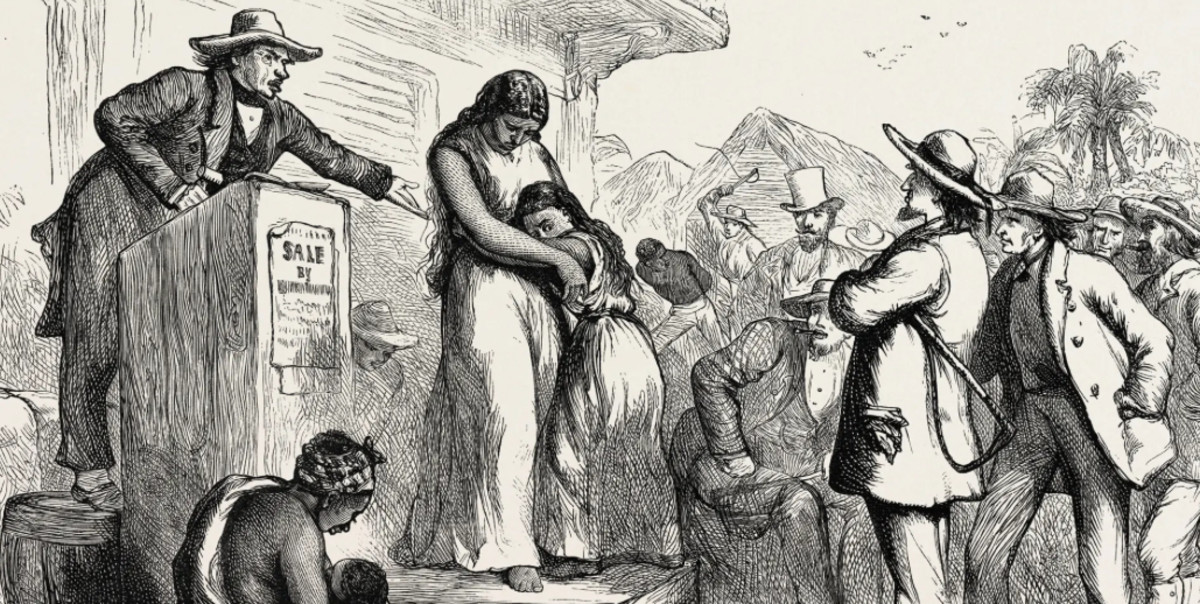Tolerance: From Enlightenment Thinking to Modern Perception

The American heritage Dictionary defines tolerance as the capacity for or the practice of recognizing and respecting the beliefs or practices of others. The Random House dictionary defines it as a fair, objective, and permissive attitude toward those whose opinions, practices, race, religion, nationality, etc., differ from one's own; freedom from bigotry. Tolerance in today’s world though has many different interpretations, notably in what capacity must something or someone be tolerated. It would be difficult indeed to find an individual who would not agree that a position of tolerance in certain matters is not only recommended, but is considered a sign of our own intellectual evolution. While the origin of tolerance was brought to fruition through Enlightenment thinkers concerning religious dissent, it has now enveloped the political and ideological spheres as well, transversing many boundaries, from race, to sex, to every practice held dear by individuals to whole societies. But who or what should be tolerated? Is there a limit to tolerance? Can a position of tolerance on an individual and a collective scale be dangerous if there are no clear guidelines as to what to tolerate and what not to? Is it possible to be to tolerant or to intolerant? I will argue that tolerance is only acceptable when the recognition of certain absolute moral standards has been established. I will show that there are limits to what is morally and ethically tolerable and only within these limits is tolerance truly a practice within reason; outside of these boundaries, tolerance can easily turn into a blanket justification receptive to the practice of even the most heinous of actions.
As Voltaire made his way through Paris in a stagecoach in 1726, it was stopped and he was pulled from the carriage and beaten severely by comrades loyal to the chevalier De Rohan; Rohan ordered this attack in response to some unflattering comments made about him by Voltaire some time earlier. This was neither the first nor the last that those who took exception to what they considered insolent behavior would physically assault him. Additionally, the Rohan family, enjoying special judicial privileges within the judicial system at the time, had Voltaire thrown into the Bastille, later being released upon the promise that he would go into exile, which he did to England. But this beating was different in that it left a strong impression upon him concerning the concept of tolerance, and one’s inherent right to voice opinion without fear of repression. While in England, Voltaire wrote Letters on England in 1733, and thirty years later, wrote Treatise on Tolerance in which he argues for the tolerance of different religious beliefs.
The Treatise on Tolerance is an important writing within the Enlightenment period that addresses the proposal of tolerance as a much-needed benefit to society, and indeed it is. Voltaire correctly points out that militant religious intolerance has lead to much bloodshed and that the Age of Reason had penetrated so deeply within the European fabric of his time as to induce tolerance towards other beliefs instead of repression. Voltaire depicts a history rife with the repercussions of religious intolerance as opposed to the eventual institution of recognized tolerance; he writes, “In the end, tolerance has been responsible for not a single civil war, whereas intolerance has covered the earth with corpses. Let us therefore judge between these two opposing figures, between the mother who would have us slay her son, and the mother who will part with him in order that he may live.” This quote is a direct allusion to the account of Solomon and the two women who both claimed a child as their own.
Voltaire though does put a limit on tolerance and sets forth axiom in which intolerance is the better of the two options by writing that actions sanctioned within the realm of tolerance only “become criminal when they threaten to undermine society whenever they inspire fanaticism.” He later adds that those institutions that act contrary to the laws of the land be abolished on the charge of nonconformity to the law. While the examples that he may provide in the case of the latter are those of extreme violence, it leads to the question of when it is acceptable to disobey the “laws of the land.” In terms though of the religious infrastructure at hand during his time, it is certainly acceptable to view the situation within the parameters that Voltaire has provided as opposed to hypothetical ones designed simply to provide an exception to the rule.
John Locke also writes of tolerance but connects religious tolerance with the ruling infrastructure. A Letter Concerning Toleration was published in 1689 and in it Locke attempts to bridge both religion and government into a cohesive understanding. Locke argues for the toleration for the various Christian denominations (with the Catholic church being the exception) in that it will prevent civil insurrection. Locke though argues that while the two can enjoy a fruitful relationship, the ruling government must disassociate itself from the responsibility of caring for the religious practices of its constituents. The argument he makes is that one cannot hand over his spiritual well being to that of a secular government and that the government or the ruling clerical order cannot by force instill theological dogma in individuals, only outward obedience. The germination of modern tolerance is found in these writings by Voltaire, Locke and other Enlightenment thinkers, eventually, the issue of tolerance spread outside of its original religious parameters into the modern realms of culture, race, sex, beliefs, and virtually any arena in which differences and opinions are aired.
In this day and age, there seems to be a misunderstanding as to what tolerance means. While the general populace may know the definitions of tolerance I provided in the introduction, it seems that many add a corollary to what tolerance is. Being tolerant of something or someone does not mean that you condone or share beliefs, opinions, or views that you find disagreeable or even abhorrent in relation to your own beliefs. Tolerance involves allowing an opinion or conduct you think is wrong while respecting the individual in the process. We cannot tolerate other individuals or beliefs unless we implicitly disagree with them. We do not “tolerate” those that we agree with, our toleration is reserved for those that differ in what they believe. Unfortunately, many will state that you are being “intolerant” if you think another individual is wrong. This, I believe, is a modern distortion of how tolerance is viewed. Within these distorted parameters, one is found in a self refuting situation in which an individual is labeled as intolerant if he judges another’s views as wrong, yet one must think that another’s views are wrong in order to be tolerant in the first place. Tolerance has undergone a modern metamorphosis that writers such as Voltaire, Kant and Locke would disagree with, that of universal tolerance. The majority of the Enlightenment thinkers, with the possible exception of one or two placed definable limits (if somewhat vague in certain cases) on the extension of tolerance within society. There’s was a clear distinction between that of beliefs and that of behavior, a distinction that has become blurred in today’s society, if not erased outright. Obviously, under this modern (meaning the acceptance of universal toleration) definition of tolerance, any behavior is permitted within “reason.” But what exactly is “reason” from one person to another. Was the “reasoning” that Nazi moralists engaged in any different that the reasoning we used to condemn them? Would those that advocate universal tolerance tolerate the genocidal beliefs of the Nazis? Granted though, for the duration of this paper, is that most believe in a limited view of tolerance but as we shall see, the borders within which one will tolerate others are different from one to another.
It is the crux of my argument that true tolerance only comes about through recognizing certain moral absolutes. This does not mean that one must adopt a certain religious view or endorse a clearly defined moral view on some spiritual plain. The atheist as well as the believer can embrace a view of moral absolutes. Without recognition of these absolutes leads only to a self refuting position in which moral judgment, much less a sustainable moral position is completely unattainable. To promote a tolerant stance without the measuring stick of absolutes is inherently contradictory. We, as a society, have reached the point where it is accepted to tolerate the viewpoints and beliefs of others without passing judgment on their behaviors and views. However, if there are no objective moral rules, then there can be no rule that demands tolerance as a moral principal that should apply to all. If there are no moral absolutes, then by what standard am I using in judging the actions of another? If I believe that morality is a measure of personal definition, then can I enforce my moral views concerning tolerance on an individual who argues from personal definition his own contrary stance? If morality and one’s views concerning tolerance are dependent on a person’s personal convictions, then it is wrong to prescribe universal axioms such as “Everyone should be tolerant of other’s beliefs and behaviors.” There is no meaning to evaluate a moral scenario or even to posit an opinion concerning the application of justice; additionally, one cannot speak of moral reform as this would imply a standard of absolutes in order to evaluate the reform to begin with. Ethical and moral tolerance is only rational when in the presence of moral and objective absolutes. Tolerance is in itself an absolute principle. Without absolute principles to abide by, one cannot engage in meaningful debate as everyone’s opinions are equal and valid, regardless of how rational or irrational they may be.
What were the moral underpinnings for those enlightenment thinkers who advocated tolerance? Kant, in addition to arguing for the inclusion of moral absolutes in the age of reason, argued for the freedom to do what the moral law requires. Kant refined and built on Rousseau’s view of the autonomous individual, free from influence and domination by either nature or man. For Rousseau and Kant, the freedom from unjustified authority that the Enlightenment offered begat the chance at becoming this autonomous individual. This view resonates in Kant’s writing on the Enlightenment, “Enlightenment is mankind’s exit from self-incurred immaturity. Immaturity is the inability to make use of one’s own understanding without the guidance of another. Self-incurred is this inability of its cause lies not in the lack of understanding but rather in the lack of the resolution and the courage to use it without the guidance of another. Sapere aude! Have the courage to use your own understanding! Is the motto of enlightenment.”To Kant, freedom and the dictate of reason go together, “The touchstone of everything that can be concluded as a law for a people lies in the question whether the people could have imposed such a law on itself.”
The concept of tolerance is now applied to a multiplicity of categories. One of the main categories is that of cultural differences. Those who employ an all-encompassing definition of tolerance are the belief that because different cultures and societies have different moral practices, we should therefore be tolerant because of the lack of objective value in which both societies can be evaluated. However, simply because people disagree about something does not mean that there is no room for an objective truth. I may differ greatly with someone who has extremist racial views, but this does not imply though that there is no justification to hold the position that he is wrong. Should one excuse the practices of Communist Russia or Nazi Germany simply because that society differs in the way that it deals with its affairs? Should we tolerate those who are intolerant? Obviously, in both personal practice as well as that on a collective scale, every individual has an inherent knowledge of what is moral or not. This misunderstanding of tolerance has led to misidentifying values with that of moral practices. Values may manifest themselves differently from culture to culture (or individual to individual) such as dictating honest behavior, the preservation of life, etc but they do not encourage needless killing, stealing, rape, etc. Tolerance is virtuous only when we believe the other person to be mistaken. Individuals have the right to their beliefs, regardless of others who may think them to be incorrect. The danger lies with the current belief for many that tolerance entails that every single individual’s beliefs, opinions, and practices are the moral equivalent of anyone else’s. Regardless of what they believe, whether it is virtuous or abhorrent.
The metamorphosis of tolerance has reached its extreme within the tenets of postmodernism in which there are no absolutes or objective truths. Everything is equally valid. Each individual decides for himself. This has led to a much darker side of tolerance, one in which postmodern thought has used to justify any and everything. This view of tolerance is supposed to lead to that of “moral liberation.” What kind of liberation though does this entail? A liberation free from constraints so that the individual can satisfy whatever he or she sees fit to do, whether good or evil? Aldous Huxley, one of the early proponents of postmodernism succinctly defined his feelings on the matter by writing, “I had motive for not wanting the world to have a meaning; consequently assumed that it had none, and was able without any difficulty to find satisfying reasons for this assumption. The philosopher who finds no meaning in the world is not concerned exclusively with a problem in pure metaphysics, he is also concerned to prove that there is no valid reason why he personally should not do as he wants to do, or why his friends should not seize political power and govern in the way that they find most advantageous to themselves. . . . For myself, the philosophy of meaninglessness was essentially an instrument of liberation, sexual and political.” Clearly, there are, at least to this author, ulterior motives in adopting such a view. It is the postmodern embrace of an all-encompassing tolerance in which tolerance expresses its darkest side. Within postmodern thought, each individual is autonomous; each has his own subjective truth that is held to no higher standard than what he feels. His sovereign subjectivity will not recognize any standard other than his own, and no one individual may offer a standard which is superior in any way as it is also within the framework of the subjective nature of the sole individual. Taken to a logical extreme, the enthronement of personal opinion as absolute truth means the end of intellectual, moral, and spiritual authority, whether such authority is represented by individuals or by institutions. At this point, even the ability to recognize what is rational and coherent breaks down, for within this all-encompassing view of postmodern toleration, every view, every choice or belief grounded within reason is the equivalent as the most irrational and abhorrent view. There is no difference. Accordingly, the distinctions between good and evil simply disappear, altruism is meaningless. Then the very act of choice is meaningless and one is left with nothing but a seemingly endless series of absurd propositions, all under the banner of valid equality as defined by postmodern tolerance.
How far should we tolerate those that disagree with us? It is at this point that there is some significant leeway. We are told within out society to tolerate all manners of free speech, even hate speech and other extremist forms of racially and religiously exclusive dialogue are to be tolerated within the ideal democratic society. While in most cases this view of tolerance is admirable, does it have its limits? Should we be tolerant of those individuals or organizations that advocate the extermination of a certain race? There is a multiplicity of organizations both here in this country and all over the world that advocate everything from separatist movements, to armed insurrection, to the subjugations of a certain culture, religion, or race. It is at this point where the lines to define what are permissible and what is not become hazy. It would be nice to employ some useful barometer to measure when tolerance will no longer excuse potentially dangerous behavior but instead we must rely on an individual or organization’s threat to the preservation of both man and society. Additionally, the granting of tolerance to a potentially dangerous and extremist view can lead to confirmation of such a view. For many such extremists, it is not tolerance that they are seeking but affirmation of what they advocate. Once again, we have a position here in which tolerance must be clarified, stripped of its present perception as a concept in which one is “accepting” of an opposing view. One is only truly tolerant when one respects the rights of other individuals to hold differing views, and to protect that right. We may still disagree with the other person but we must protect that right (as long as it does not lead to violence or the chance of inflicting danger on others). For example, one may disagree with the homosexual lifestyle, and tolerate a practicing homosexual, but such toleration does not entail accepting as valid that person’s behavior.
True tolerance accepts others views and is simply not a ready defense to use in defending your own. Witness this quote from Faye Wattleton, the former President from Planned Parenthood: “Like most parents, I think that a sense of moral responsibility is one of the greatest gifts I can give my child. But teaching morality doesn’t mean imposing my moral value on others. My parents’ morals were deeply rooted in religious conviction but tempered by tolerance-the essence of which is respect for other people’s views. They taught me that reasonable people may differ on moral issues, and that fundamental respect for others is morality of the highest order.” This statement is certainly admirable. However, just three paragraphs later in the same article she writes, “I’m proud to continue that struggle, to defend the rights of all people to their own beliefs. When others try to inflict their views on me, my daughter, or anyone else, that’s not morality; it’s tyranny. It’s unfair, and it’s un-American.” In this case it is readily apparent that Mrs. Wattleton believes in tolerance only as far as protecting her own personal views, but not those who disagree with her; they are labeled as tyrannical. Here we have a classic case of the modern perception of tolerance. She has refused to accord respect for the individual who disagrees with her because she has exhibited intolerance toward the individual with his beliefs. Within society, an individual is allowed to believe what he or she wants, and has the liberty to express those beliefs, but the individual may not always behave in the manner he desires. As Abraham Lincoln stated, “There is no right to do wrong.” The ironic fact is that many proponents for tolerance though show little tolerance for the expression of beliefs and opinions within the arena of religion and morality. They will tolerate all manners of behavior but will not tolerate any opinions that oppose that behavior. This is simply intellectual cowardice and demonstrates that many individuals will resort to this rather than be challenged by ideas, opinions contrary to their own. There is a defect shared by modern liberal democracies in that they tend to advocate a narrow conception of what it means to have a good and meaningful life by defining such as a singular dimensional materialism of middle class society. As Robert Kraynak writes, these proponents of modern liberalism “have followed a flawed strategy of trying to vindicate human dignity by denying the objective existence of a greatest good, thereby allowing each person or nation to determine its own identity."
So what is true tolerance? One is only truly tolerant when one respects the rights of other individuals to hold differing views, and to protect that right. True tolerance entails the ability to recognize when other’s actions threaten the well-being of individuals who do not share that particular view and to act accordingly to restrain it. The Enlightenment thinkers argued that tolerance should be practiced within society but within limits. Most, if not all the Enlightenment authors would have abhorred an insurrectionist view against the ruling authorities or any undermining of society. Tolerance should be accorded to all individuals in all circumstances; one should respect other’s opinions, beliefs, and ideas even when vehemently disagreeing with them. Such behavior on the part of those advocating opposing views should be permitted as long as it is consistent with the common good of society. It is what the Enlightenment thinkers bequeathed us when they were using the concept of tolerance to defuse the religious tension of their day.





